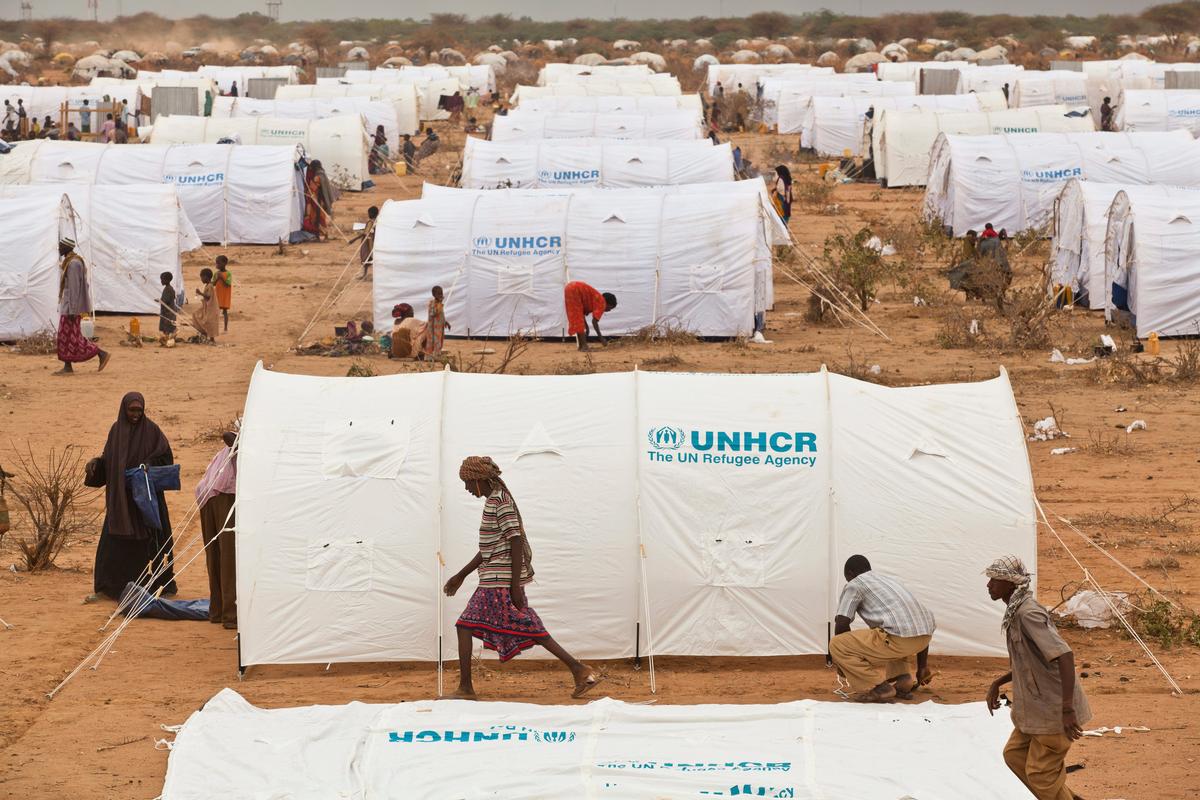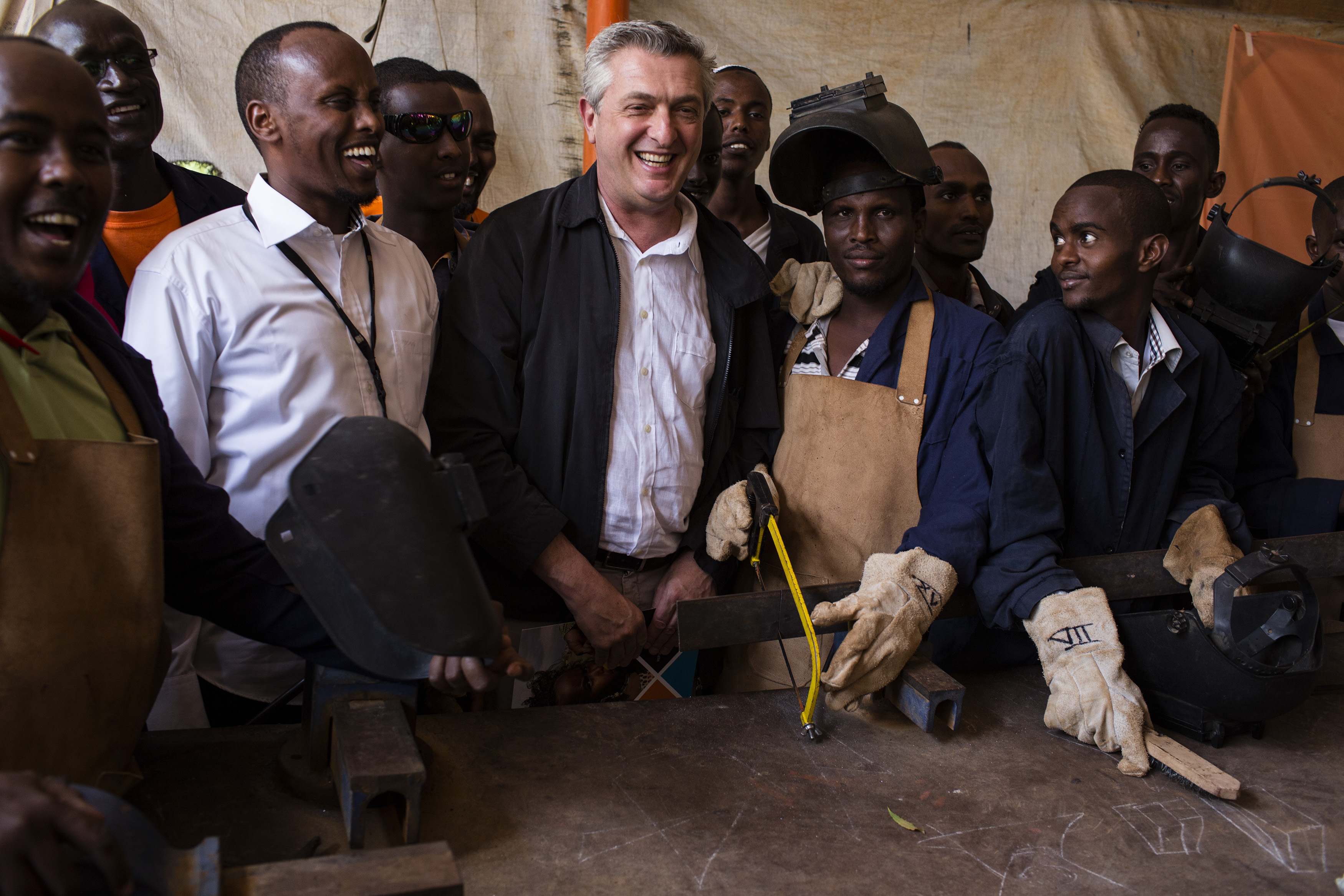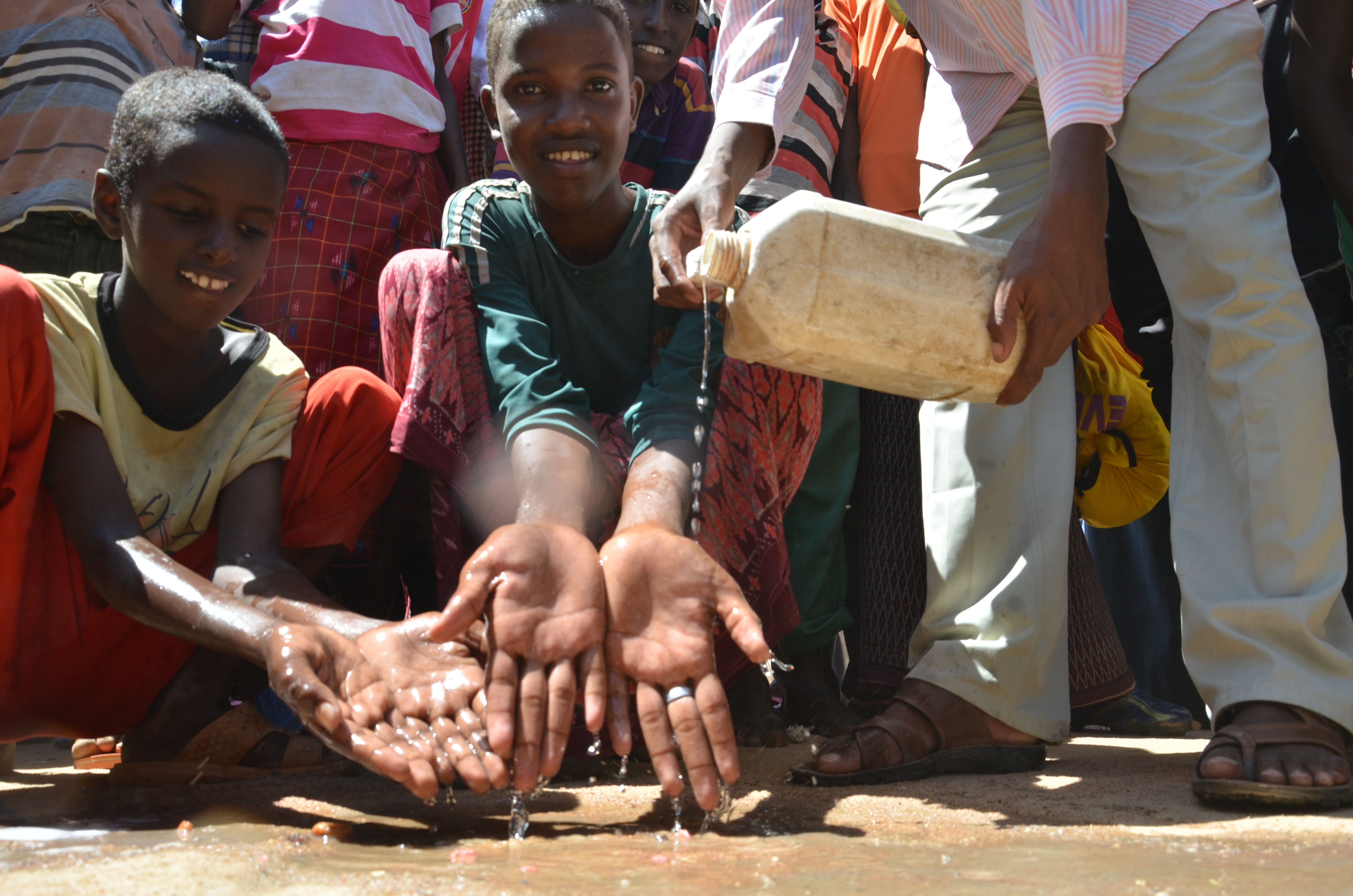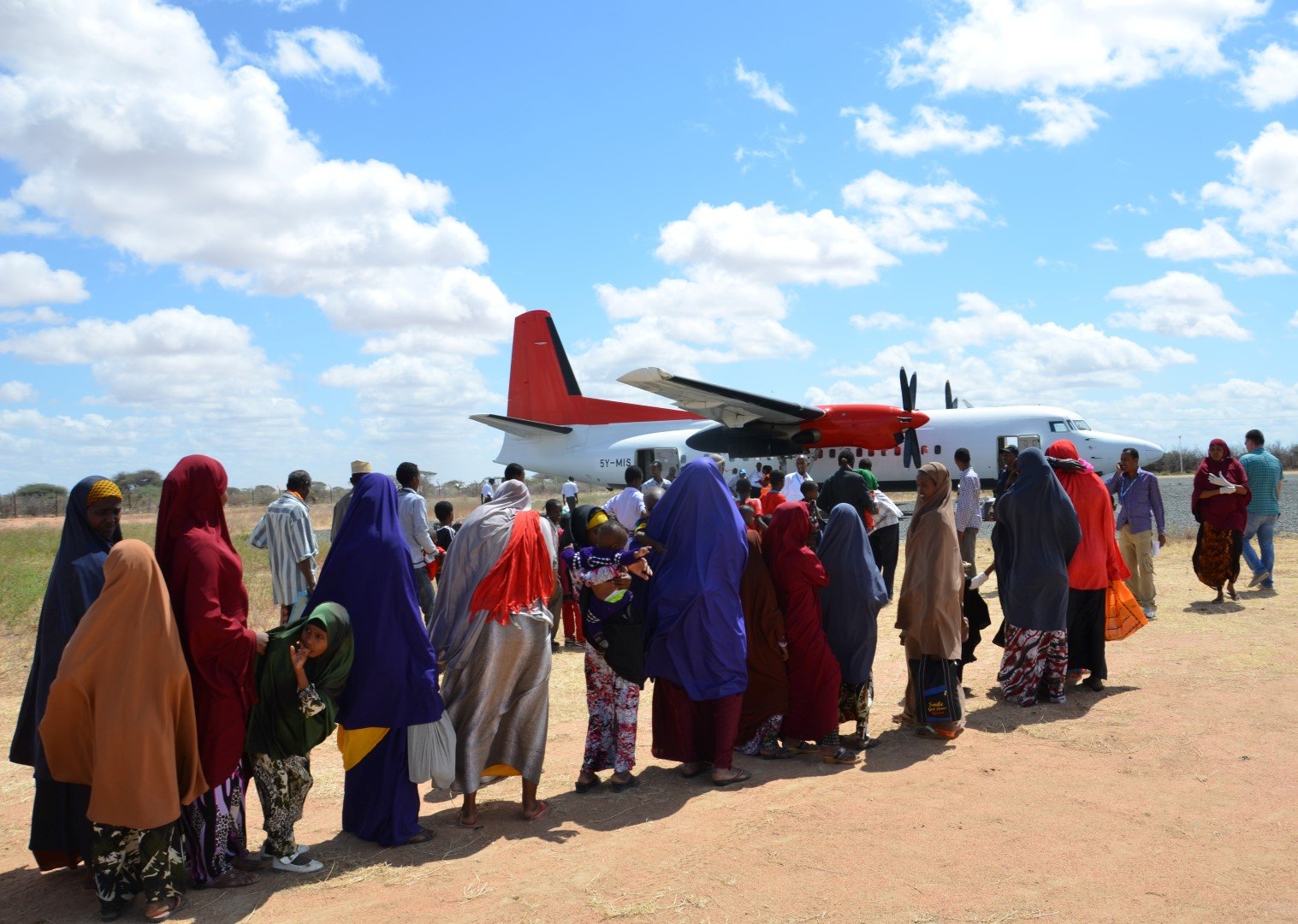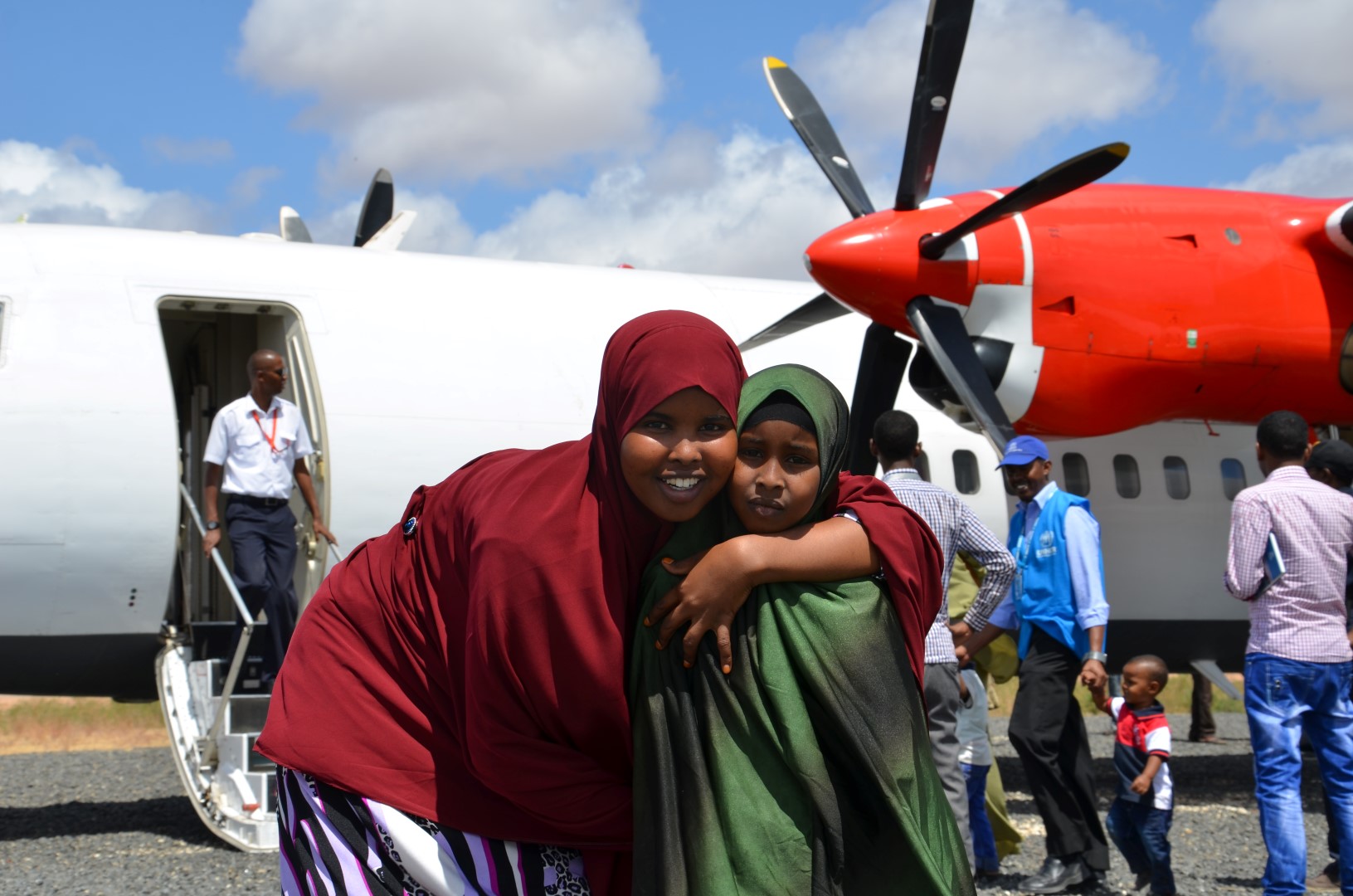New Somali president brings hope to Dadaab's refugees
New Somali president brings hope to Dadaab's refugees

DADAAB, Kenya, Oct 15 (UNHCR) - After more than a decade of nothing but bad news from their homeland, Somali refugees in neighbouring Kenya today are filled with hope and excitement - now that their country has a new president.
Around the three camps that make up the Dadaab complex in north-eastern Kenya, Somali refugees gathered in front of television sets on Thursday to watch Kenya national television's live broadcast of the day-long swearing-in ceremony of the new Somali president, Abdullahi Yusuf.
When the new president read out the oath in the Somali language, there were huge cheers in the sports centre in the Kenyan capital, Nairobi, where the ceremony was held - and huge cheers as well in Dadaab.
"Today I am full of hope," said a 46-year-old woman refugee, Abshiro Aden Mohamed, summing up the feelings of many.
In front of the TV sets, refugees loudly and excitedly discussed whether they will finally get to go back to Somalia, where rival warlords have been battling for control since 1991. "At long last, there's peace" seemed to be the consensus.
The new president's election is the culmination of a long peace process sponsored by a regional African body, the Inter-Governmental Authority on Development (IGAD). But the challenges that still lie ahead were underscored by the fact that the ceremony had to be held in Nairobi, and the Somali transitional parliament will meet in the Kenyan capital as well, because the Somali capital, Mogadishu, is still unsafe.
"IGAD will not allow anyone to come in and mess up the peace process," promised Uganda's President Yoweri Museveni, who is the current IGAD chairman.
For many refugees who fled Somalia in 1991, when dictator Siad Barre was overthrown, this marks the first real hope for a safe return to southern Somalia.
"I have been here for a long time. I now want to go back home to my country," said 25-year-old Hamdi Hassan Hashi.
Most of the 140,000 refugees in Dadaab are from southern Somalia, where UNHCR has not yet encouraged returns. The two regions of northern Somalia - the self-declared independent state of Somaliland (north-western Somalia), and Puntland (north-eastern Somalia) - are a different case.
Over the last 13 years, more than 867,000 Somali refugees have returned to their homeland, including more than 467,000 on convoys and airlifts organised by the UN refugee agency to the north-west.
UNHCR, working with its partners, has numerous projects in both Somaliland and Puntland to make sure the returnees have the basics they need to rebuild their lives in this desperately poor part of the world. In Puntland, former refugees are investing their skills and money earned abroad to build a lively economy.
Hundreds of thousands of Somalis remain in exile, mainly in neighbouring countries but also further afield, due to the continued instability in many areas of their homeland.
If hopes are high, the refugees in Dadaab have also been buffeted enough by violence in Somalia to be a bit cautious. "We are waiting for UNHCR to advise us," said Omar Ibrahim Ali, a 61-year-old father of four. "If the situation is safe, we will pack our bags and go."
The refugee agency also welcomed the steps towards peace. George Okoth-Obbo, UNHCR's Representative in Kenya, called the election of the new president "the most telling opportunity Somalia has ever had" to turn its back on "14 years of strife and crisis."
"UNHCR looks forward to seizing every prospect that will come, to help the 140,000 Somali refugees under our protection in Kenya to return home in safety, dignity and sustainability," he said.
Abdikadir Mowlid Aden is a 17-year-old student at Ifo Secondary School near Dadaab, who has had an opportunity as a refugee to get an education he would not have gotten in his war-torn homeland. Spending nearly his entire life in exile, though, has taught him to be suspicious of Somali warlords and politicians.
"I've been listening to the radio and following the peace process," he said. "Everybody is excited, but I am not. These people are cheating us."
Rather than rush home, Abdikadir sees a wiser course of action for himself: "I want to stay here and complete my education before I go back."
By Emmanuel Nyabera in Dadaab, Kenya

